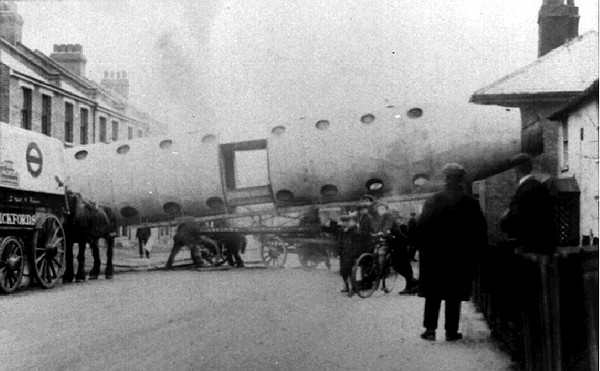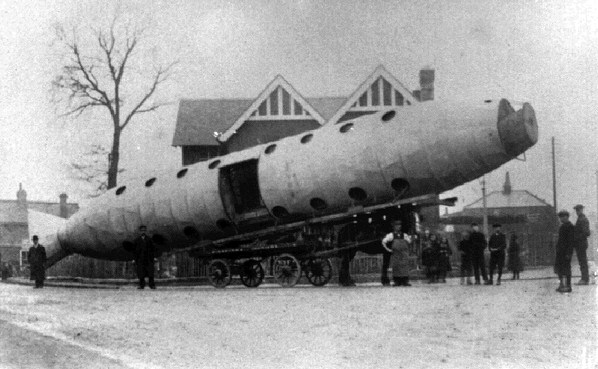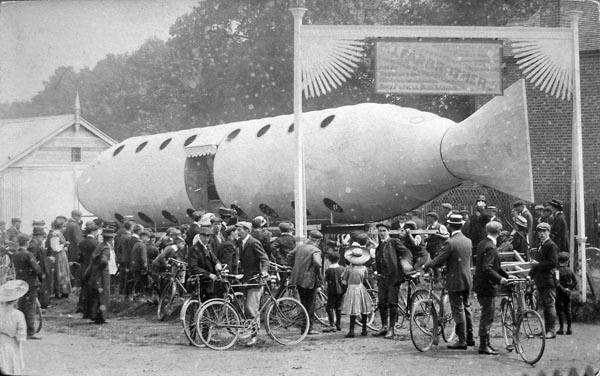
|
Home Page |

In the early 1900s The Daily Mail newspaper offered a variety of substantial prizes for aviation 'firsts' such as crossing the Channel, won by Louis Blériot in July 1909, and a 'Round Britain' flight, won by André Beaumont in 1911. These competitions, and others like them, had resulted in many attempts to build suitable aeroplanes and one of the competing designs was, according to a Lloyds Weekly News illustration dated 9th January 1910, being constructed in Wokingham by the owner of a joinery company, Mr A.M. Farbrother.

The photograph is inscribed "The Airship gondola" on the reverse
The large fuselage on a horse drawn cart
was photographed in January 1910 outside the entrance to the
cemetery in St Leonards Road, Windsor. It was brought from Wokingham
on a Pickfords horse and cart for an 80 h.p. Blériot engine
to be installed.
The 16 portholes were to hold poles on which canvas
was to be spread forming 'wings'. At that time Patrick Y. Alexander
was a part time aeronautics teacher at the United Services College
(later ISC)
in Alma Road, Windsor. He was regarded as a propeller design
expert, and the Farbrother aircraft was to be 'lifted' by power
transmitted by a long shaft. P.Y. Alexander kept several cuttings
from Motor World and Flight magazines about the
machine, which was seen by many Windsor boys, almost certainly
including Sydney
Camm and his brother Fred Camm.
The gondola was huge. It was 66 feet long and designed
to extend telescopically to 140 feet in length, 31 feet high
and 20 feet wide. It was planned to have a 'Rotoscope' installed
making 1,200 revolutions per minute to lift it into the air,
complete with seating, electric lighting, 'self-balancing' hammocks,
and lavatory accommodation, "for navigation over seas and
other waters". Application was made for patents,
but these appear to have been refused.
The fuselage was conveyed back to Wokingham, where
it was eventually broken up, after Mr Farbrother had sold his
cottage to finance the project, helped by donations from Wokingham
people. Enthusiasm had outstripped skill and financial prudence
again.

Home Page |